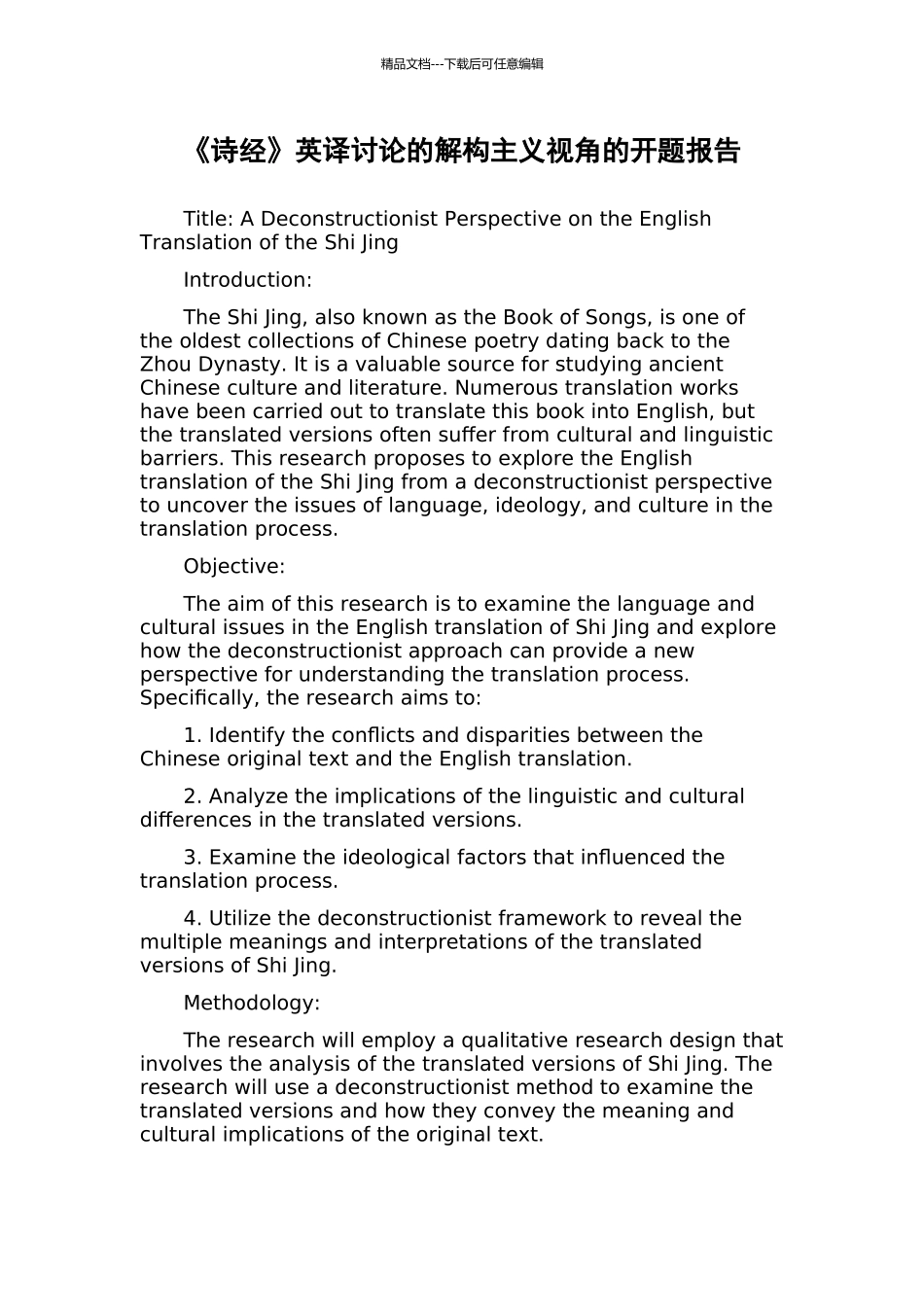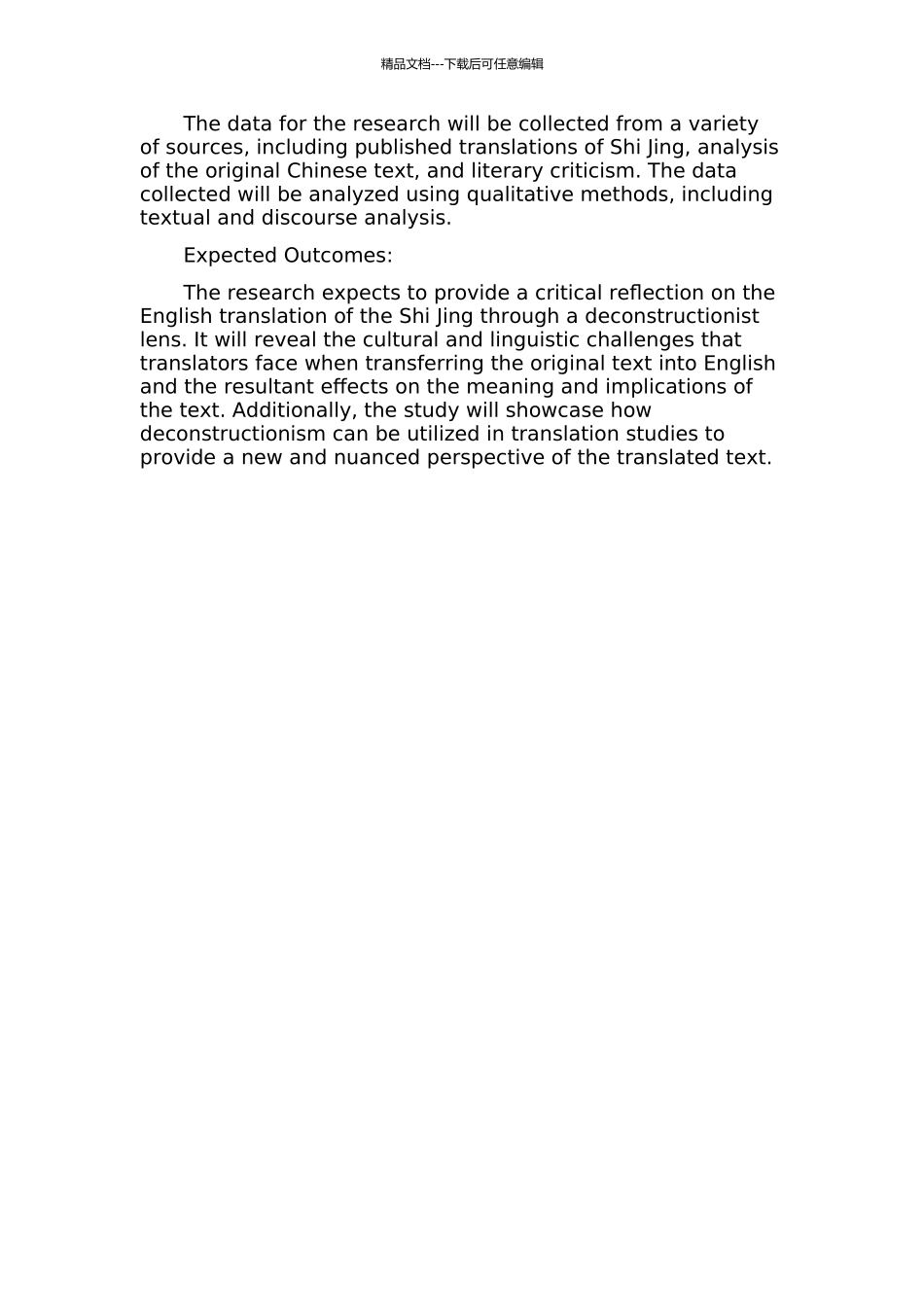精品文档---下载后可任意编辑《诗经》英译讨论的解构主义视角的开题报告Title: A Deconstructionist Perspective on the English Translation of the Shi JingIntroduction:The Shi Jing, also known as the Book of Songs, is one of the oldest collections of Chinese poetry dating back to the Zhou Dynasty. It is a valuable source for studying ancient Chinese culture and literature. Numerous translation works have been carried out to translate this book into English, but the translated versions often suffer from cultural and linguistic barriers. This research proposes to explore the English translation of the Shi Jing from a deconstructionist perspective to uncover the issues of language, ideology, and culture in the translation process.Objective:The aim of this research is to examine the language and cultural issues in the English translation of Shi Jing and explore how the deconstructionist approach can provide a new perspective for understanding the translation process. Specifically, the research aims to:1. Identify the conflicts and disparities between the Chinese original text and the English translation.2. Analyze the implications of the linguistic and cultural differences in the translated versions.3. Examine the ideological factors that influenced the translation process.4. Utilize the deconstructionist framework to reveal the multiple meanings and interpretations of the translated versions of Shi Jing.Methodology:The research will employ a qualitative research design that involves the analysis of the translated versions of Shi Jing. The research will use a deconstructionist method to examine the translated versions and how they convey the meaning and cultural implications of the original text.精品文档---下载后可任意编辑The data for the research will be collected from a variety of sources, including published translations of Shi Jing, analysis of the original Chinese text, and literary criticism. The data collected will be analyzed using qualitative methods, including textual and discourse analysis.Expected Outcomes:The research expects to provide a critical reflection on the English translation of the Shi Jing through a deconstructionist lens. It will reveal the cultural and linguistic challenges that translators face when transferring the original text into English and the resultant effects on the meaning and implications of the text. Additionally, the study will showcase how deconstructionism can be utilized in translation studies to provide a new and nuanced perspective of the translated text.

